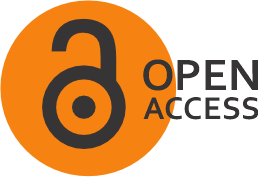Institutional economics approach in tourism: A review of economic philosophy

Published online: 30 Jun 2024
Abstract
Purpose - This article reviews the application of Institutional Economics in the tourism sector, evaluating its ability to address the limitations of conventional economic theories and enhance understanding of tourism’s social and economic impacts.
Methodology/Design/Approach - Using a theoretical approach, the article explores how Institutional Economics can overcome traditional economic theories' limitations and contribute to more inclusive and sustainable tourism policies.
Finding - Institutional Economics offers valuable insights into tourism, addressing gaps in conventional models. It promotes a more comprehensive understanding of tourism’s impacts, particularly in sustainability and inclusivity, aiding the development of policies that prioritize long-term societal welfare and economic growth.
Originality/Value - This article introduces a novel perspective by applying Institutional Economics to tourism, emphasizing the need for sustainable and inclusive tourism policies that focus on societal and economic well-being.
References
Chang, Ha-Joon Eva & P. Evans, 2000. ―The Role of Institutions in Economic Changeǁ, a paper presented at The Workshop on The Other Canon in Economics, 15 – 16 August 2000, Oslo, Norway.
Cohen, Dov. 2001. ―Cultural Variation: Considerations and Implications. Psychological BulletinVol. 127, No. 4, 451-471.
Dawson, John W. 2007. ―The Empirical Institution – Growth Literature : Is Something Amiss at the Top?. Economic Journal Watch. Volume 4, Number 2, May 2007. Pp. 184 – 196.
De Gregori, Thomas R. 1987. ―Resources Are Not; They Become: An Institutional Theory. Journal of Economic Issues. Vol. XX1, No. 3, pp. 1241 – 1263.
Dugger, William M. 1996. "Redefining economics: from market allocation to social provisioning." Political Economy for the 21st Century : Contemporary Views on the Trend of Economics. Armonk. New York. M.E. Sharpe, pp: 31-43.
Forth, Gregory L.,1981. Rindi: An Ethnographic Study of A Traditional Domain in Eastern Sumba. The Hague – Martinus Nijhoff.
Gunawan, Istutiah, 2000. Hierarchy and Balance : A Study of Wanokaka Social Organization. Departement of Anthropology Research School of Pasific and Asian Studies. The Australian National University.
Greif, Avner, 2006. Institutions and the Path to the Modern Economy. Cambridge: Cambridge University Press.
Hira, Anil and Ron Hira, 2000. ―The New Institutionalism: Contradictory Notion of Change. American Journal of Economics and Sociology.Vol. 59.No. 2. Pp 267 -282.
Hodgson, Geoffrey M., 1998. ― The Approach of Institutional Economics. Journal of Economic Literature. Vol. XXXVI, March, 1998, pp 166 – 192.
Hu, Biliang. 2007. Informal Institutions and Rural Development in China. Routledge studies on the Chinese economy. Routledge.
Jo, Tae-Hee. 2011. ―Social Provisioning Process and Socio-Economic Modelingǁ. MPRA Paper No. 28969. Online at http://mpra.ub.unimuenchen.de/28969/.
Keane, Webb. 2007. Christian Moderns : Freedom and Fetish in the Mission Encounter. University of California Press, pp 150.
Lipsey, Richard G., Christopher T.S. Ragan, Paul A Storer. 2008. Economics. 13th Edition.Pearson International Edition. Pearson-Addison Wesley.
McConnell, Campbell, R., Stanley L. Brue. 2008. Economics : Principles, Problems, and Policies. 17th Edition. McGraw-Hill International Edition.
Mehta, L.,M. Leach, P. Newell, I. Scoones, K. Sivaramakrishnan, S. Way.1999. ―Exploring Understandings of Institutions and Uncertainty : New Directions in Natural Resource Management. IDS Discussion Paper 372.Brighton. Institute of Development Studies.
Myrdal, Gunnar, 1978. ―Institutional Economicsǁ.Journal of Economic Issues, Vol. XII, No. 4, December 1978, pp. 771-783.
Mubyarto. (2002). "Meninjau Kembali Ekonomika Neoklasik" Jurnal Ekonomi dan Bisnis Indonesia, Vol 17, No.2, 2002, 119-129.
Syahyuti, 2013, ―Lembaga dan Organisasi, serta Analisis Kelembagaa. Diunduh dari: https://syahyuti.wordpress.com/2013/08/02/lembagadan-organisasi-serta-analisis-kelembagaan-2/.
Santosa, (2010), Kegagalan Aliran Neoklasik dan Relevansi Aliran Ekonomi Kelembagaan dalam Ranah Kajian Ilmu Ekonomi,Pidato Pengukuhan Guru Besar dalam Ilmu Ekonomi pada Fakultas Ekonomi Universitas Diponegoro, Semarang : BP Undip.
Yustika, A.E. ,(2005). "Problems of The Indonesian Sugar Industry: an Institutional Economics Perspective" Jurnal Ekonomi dan Bisnis Indonesia. Vol.20, No.4, 2005, 368-382.
Vel, Jacqueline, A.C., 1994. The Uma Economy: Indigenous economics and development work in Lawonda, Sumba (Eastern Indonesia). PhD thesis Agricultural University,Wageningen.
Veblen, Thorstein. 1898.Why is Economics not an Evolutionary Science. The Quarterly Journal of Economics.Vol. 12, No. 4 (July, 1898), pp. 373 –379.
Veblen, Thorstein. 2003. The Theory of the Leisure Class. A Penn State Electronic Classics Series Publication.The Pennsylvania State University.
Williamson, Oliver E., 2000. ― The New Institutional Economics: Taking Stock, Looking Aheadǁ. Journal of Economic Literature, Vol 38, No. 3, (Sep., 2000), pp. 595 – 613.
Yustika, Ahmad Erani, 2008. Ekonomi Kelembagaan: Definisi, Teori, dan Strategi. Malang. Bayumedia Publishing.
License
Copyright (c) 2024 Syahrul Karim, Bambang Jati Kusuma, Farida Farida (Author)

This work is licensed under a Creative Commons Attribution 4.0 International License.
Permission is granted subject to the terms of the License under which the work was published. Permission will be required if your reuse is not covered by the terms of the License.

